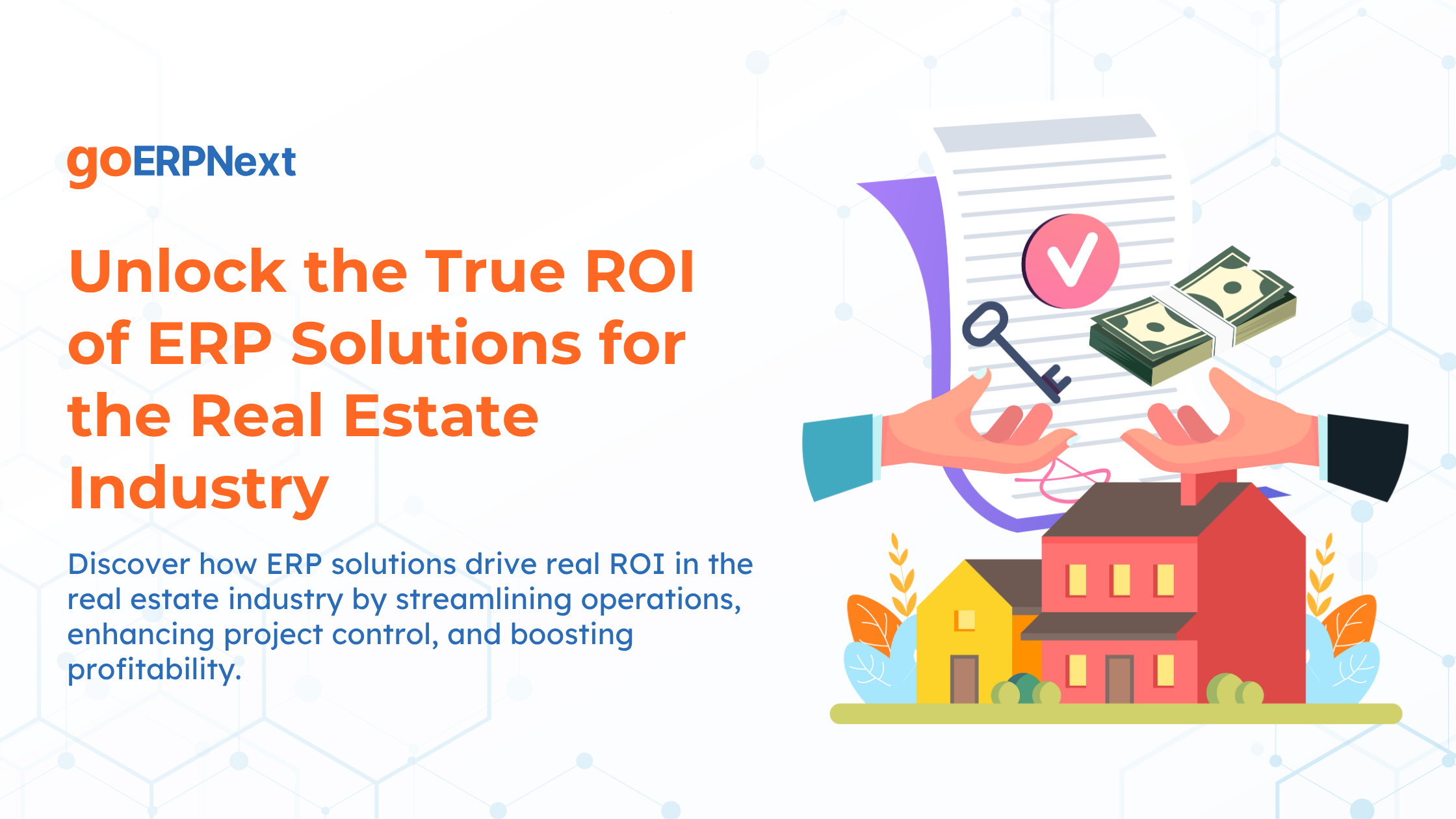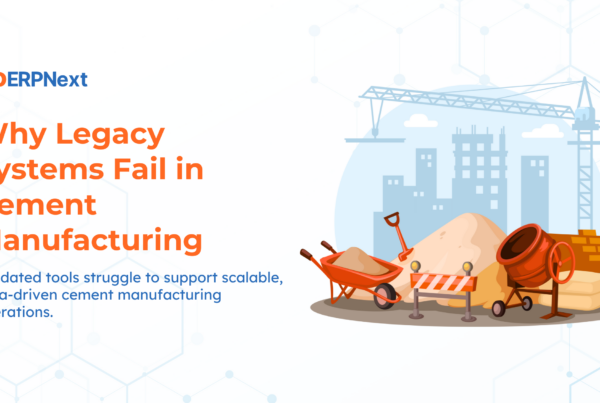
Introduction
In an industry where timing, transparency, and cost control determine success, real estate developers face the ongoing challenge of managing multiple projects, clients, teams, and regulatory obligations. Amid these complexities, the adoption of a robust ERP solution for the real estate industry is proving to be a game-changer.
While the initial investment in ERP software may seem significant, the long-term return on investment (ROI) is undeniable. From streamlining operations to boosting customer satisfaction and improving financial accuracy, an integrated real estate ERP system can unlock hidden value across the entire property lifecycle.
This article explores how ERP for real estate not only simplifies business processes but also delivers measurable ROI — helping real estate firms achieve operational excellence and sustainable growth.
The Real Estate Industry’s Complex Operational Landscape
The real estate sector operates on a large scale with a multitude of moving parts. These include:
- Lead generation and sales funnel management
- Property development and project tracking
- Legal documentation and compliance
- Payment collection and financial planning
- Inventory and asset management
- Vendor coordination and subcontractor oversight
Handling these processes through disconnected tools or manual spreadsheets often results in miscommunication, delays, cost overruns, and client dissatisfaction. That’s where a centralized ERP system for real estate developers creates real value.
What Is Real Estate ERP?
A real estate ERP software is a comprehensive, integrated solution designed to manage every aspect of property development and sales — from lead acquisition to possession handover. It combines core business modules such as CRM, project management, financial accounting, inventory, HR, and procurement under a unified dashboard.
By digitizing and automating day-to-day activities, real estate ERP systems minimize human error, improve reporting accuracy, and allow for real-time decision-making.
How ERP Maximizes ROI in the Real Estate Industry
1. Efficient Project and Cost Management
A modern ERP for real estate enables developers to track project timelines, milestones, and budgets from a single interface. It allows real-time monitoring of:
- Material usage and purchase
- Labor costs and resource allocation
- Vendor payments and billing schedules
This helps in controlling cost overruns and ensures that projects remain profitable, directly improving your ROI.
2. Improved Lead Conversion and Sales Efficiency
With integrated real estate CRM modules, businesses can automate lead nurturing, schedule follow-ups, manage site visits, and track conversions more efficiently. When sales teams have visibility into real-time unit availability, pricing, and documentation, they close deals faster and boost revenue generation.
An optimized sales process directly translates into increased return on investment and shorter sales cycles.
3. Automated Financial Reporting and Compliance
Manual accounting is prone to delays and errors, which can be costly in an industry as sensitive as real estate. An ERP with real estate accounting software capabilities automates:
- Invoicing and collections
- Tax calculations and TDS
- Payment schedules and cash flow forecasts
- Bank reconciliation and financial statements
This ensures compliance, reduces audit risks, and provides actionable financial insights — a critical component for calculating and improving ROI.
4. Inventory and Property Unit Management
A key feature of real estate ERP solutions is the ability to manage inventory dynamically. Whether it’s a single project or multiple properties across locations, ERP allows developers to:
- Track unit-wise availability
- Reserve or block units
- Monitor pricing changes
- Analyze sales velocity
Having real-time visibility into property inventory prevents overbooking and improves decision-making, leading to better capital utilization.
5. Customer Experience and Retention
Delivering a seamless experience is no longer optional. With ERP for real estate companies, clients can receive:
- Instant access to payment plans and receipts
- Real-time project status updates
- Digitally signed agreements and documentation
- Automated notifications and reminders
Happy clients are more likely to refer others and engage in repeat business, enhancing lifetime customer value and increasing your overall ROI.
Real-Time Dashboards and Analytics for Strategic Growth
ERP dashboards provide role-based access to KPIs such as:
- Project-wise profitability
- Sales pipeline health
- Expense vs. revenue analysis
- Customer support performance
By analyzing these metrics, decision-makers can forecast growth, identify underperforming areas, and adjust strategy — all of which contribute to higher returns and efficient scaling.
Streamlined Vendor and Subcontractor Management
Managing multiple contractors and vendors manually often leads to miscommunication and delays. ERP systems automate:
- Vendor onboarding and evaluation
- Contract creation and tracking
- Payment releases and dispute resolution
- Material purchase planning
By optimizing your vendor ecosystem through ERP, you reduce overhead, avoid delays, and maximize project ROI.
Scalable Operations for Long-Term Value
As a real estate firm grows, managing operations manually becomes unsustainable. ERP for property developers scales with your business and ensures that:
- New projects and teams are onboarded easily
- Regulatory frameworks are updated automatically
- Multi-location operations are managed centrally
- Performance benchmarks are consistently monitored
This scalability ensures that every rupee invested into ERP continues to yield value even as the organization evolves.
Conclusion
In today’s competitive and highly-regulated real estate market, the decision to adopt ERP is not just about automation — it’s about maximizing returns. A well-implemented real estate ERP system ensures that every department, from finance to sales to operations, works in sync towards a common goal: delivering value.
By investing in a feature-rich, scalable ERP for the real estate industry, developers can unlock new efficiencies, improve customer satisfaction, reduce operating costs, and most importantly — boost their return on investment.


